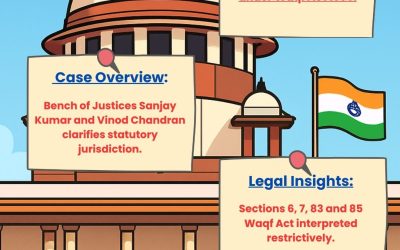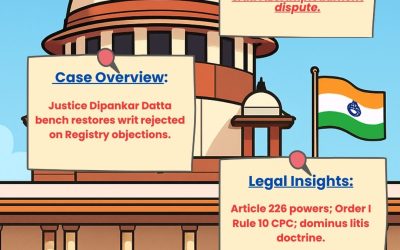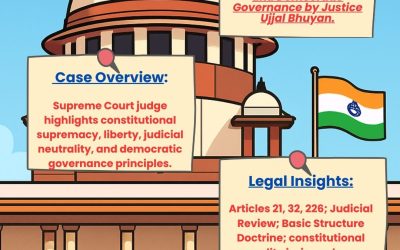
Supreme Court mandates speedy disposal of execution petitions, holding presiding officers accountable for delays.
SUPREME COURT ORDERS HIGH COURTS TO DISPOSE OF EXECUTION PETITIONS WITHIN 6 MONTHS
Headline
The Supreme Court orders High Courts to dispose of execution petitions within 6 months and hold presiding officers liable for delays.
Summary
The SupremeCourt has ordered all High Courts to collect data on pending execution petitions and sees that their disposal within 6 months. If delays happen , the presiding officers will be held responsible administratively.
Key Facts
- Case Name: Periyammal (Dead) through LRs vs V Rajamani and another
- Bench: Justice JB Pardiwala and Justice R Mahadevan
- Petitions of execution are taking years to be disposed of which is causing delay in justice for decree-holders.
- High Courts must issue administrative orders and make strict guidelines for speedy execution.
Legal Insights
The Supreme Court of India reiterated its decision in the case of ‘Rahul S Shah vs. Jinendra Kumar Gandhi (2021)’ & ‘Bhoj Raj Garg vs. Goyal Education and Welfare Society (2022)’, ordering execution proceedings to conclude within 6 months. The principle sticks with Order XXI (21) of the Civil Procedure Code (CPC) which is the execution of decrees.
Impact
This order of the Supreme Court will accelerate the enforcement of court decrees, stopping unnecessary delays in justice delivery.
Why It Matters
Delays in execution petitions erode the credibility of the judicial system. The interference of the Supreme Court’s purpose is to ensure efficiency and accountability in the execution process.
Source
- Legal Glossary-petition
- Supreme Court of India







